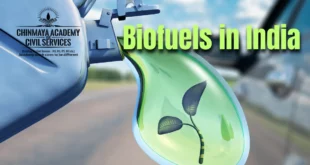- In what could be a boon to Scheduled Caste students pursuing medical courses and availing themselves of the Central government’s Post Matric Scholarship (PMS) scheme, the Tamil Nadu government is considering a proposal to enhance the PMS to match the fees paid for those admitted under the 7.5% quota.
- The State government had on October 29, 2020, issued an order reserving 7.5% of the seats for students who studied at government schools and qualified in NEET for admission to undergraduate medical courses such as MBBS, BDS, Siddha, Ayurveda, Unani and Homeopathy from the academic year 2020-21.
- A month later, the government sanctioned ₹16 crore for creating a revolving fund to be operated by the Tamil Nadu Medical Services Corporation Limited to facilitate payment of essential fees and hostel fees for the students.
Huge disparity
- According to official sources, a huge disparity was observed when an analysis of the fee structure for those admitted under the 7.5% quota was made in comparison with the fee component for the SC students under the PMS scheme. The disparity was because the value of scholarship under the PMS scheme comprised only two components — academic allowance and compulsory non-refundable fee which did not cover book fee, uniform fee, hostel fee, mess fee, transportation fee and a refundable caution deposit payable by a student.
- Giving details of the fee structure admissible under the 7.5% quota and the PMS scheme, the note explained that the fee for MBBS students admitted under the 7.5% quota at government colleges was ₹1,46,228, while under the PMS scheme it was ₹27,000-₹54,000. The fee at private colleges (under the government quota) was ₹8,42,000 and ₹3,92,000-₹4,38,500 respectively.
- In the proposal sent by the Directorate of Adi Dravidar Welfare to the government, it was pointed out that the disparity had put SC students at a disadvantage since they had to shell out a huge sum by obtaining loans from banks/third parties. Many banks were not considering their loan applications for want of collateral security.
- Seeking the intervention of the government to sort out the issue, the proposal said SC students also belonged to the marginalised section, similar to poor students of government schools. The fee concession extended to students under the 7.5% quota was irrespective of their income, whereas a student can qualify for the PMS scheme if only the income was less than ₹2.5 lakh a year.
Fee concession
- The proposal urged the State government to provide a fee concession to all SC students getting admitted to MBBS/BDS and availing themselves of the PMS scheme on the same rationale adopted for students under the 7.5% quota.
- It was suggested that the expenditure (deficit) thus incurred be met from the State scheme.
SOURCE: THE HINDU, THE ECONOMIC TIMES, PIB
 Chinmaya IAS Academy – Current Affairs Chinmaya IAS Academy – Current Affairs
Chinmaya IAS Academy – Current Affairs Chinmaya IAS Academy – Current Affairs



